Your current answer is the incorrect way to use prepared statement. If you use the way you pose, you open yourself up to SQL injection because you aren't interpreting the value you want to use in the statement as a value, you use it as part of the overall statement and then run the statement without parameters. That means that I could potentially provide a value that might not do exactly what you think it will.
For example the following won't do anything,
const $rowid = "3 OR rowid = 4";
const deleteStatement = db.prepare("DELETE FROM lorem WHERE rowid = $rowid");
deleteStatement.run({$rowid});
deleteStatement.finalize();
But this will delete elements with rowid 3 or 4:
const $rowid = "3 OR rowid = 4";
const deleteStatement = db.prepare(`DELETE FROM lorem WHERE rowid = ${$rowid}`);
deleteStatement.run();
deleteStatement.finalize();
Instead, take a look at the sqlite3 documentation here.
You need to actually paramaterize your prepared statement like the following:
const sqlite3 = require("sqlite3").verbose();
const db = new sqlite3.Database(":memory:");
db.serialize(function() {
// Make the table
db.run("CREATE TABLE lorem (info TEXT)");
// Create some dummy data
const insertStatement = db.prepare("INSERT INTO lorem VALUES (?)");
for (let i = 0; i < 5; i++) {
insertStatement.run(`My Data ${i}`);
}
insertStatement.finalize();
// Delete some data
const deleteStatement = db.prepare("DELETE FROM lorem WHERE rowid = $rowid");
deleteStatement.run({
$rowid: 3
});
deleteStatement.finalize();
// Print elements
db.each("SELECT rowid AS id, info FROM lorem", (err, {id, info}) => console.log(`${id}: ${info}`));
});
db.close();
 This is what I have tried.
This is what I have tried.